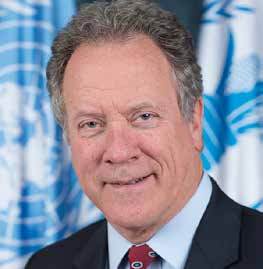About the Session:
Keynote: David Beasley, WFP
Mr. David Beasley, Executive Director of the World Food Programme presents a keynote address to the 22nd Annual Global Child Nutrition Forum.
Mr. David Beasley, Executive Director of the World Food Programme presents a keynote address to the 22nd Annual Global Child Nutrition Forum.
· An entire generation has had their education disrupted due to school closures. At the peak in the first wave 1.6 billion child had been locked out of the classroom.
· Millions of vulnerable children have also had their long-term health and well-being put at risk because they’ve missed out on precious free school meals, the only nutritious meal that many of them get each day.
· At the peak of the pandemic, 370 million children lost out on school meals, exacerbating the threat of a COVID induced global hunger pandemic. The virus is threating to rob these kids of their very important future.
· All the evidence shows that school meals and school meal programs, along with other social safety nets are one of the best long term investments governments can make. School meals combat child hunger, support their long-term well-being, and help children learn and help children thrive.
· Where school meal programs are in place, we see a reduction in child marriages, pregnancies fall, and opportunities for girls go up.
· Ending child hunger is a critical first step toward peace, education, and learning.
